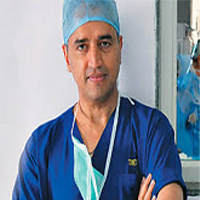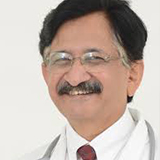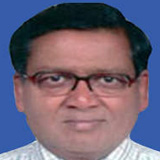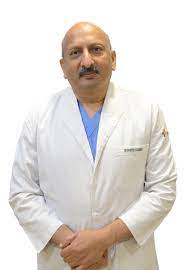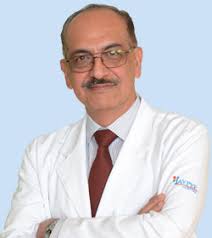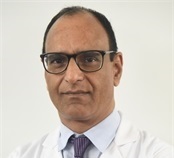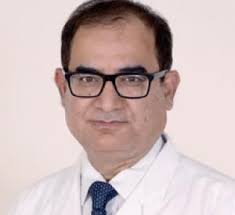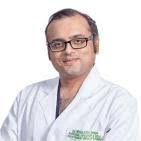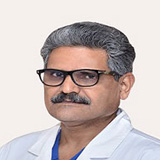Ventricular Septal Defect (VSD) Surgery IN INDIA
Imagine your heart like a cosy apartment complex with different rooms for blood flow. But sometimes, an unexpected problem called Ventricular Septal Defect (VSD) can happen. It’s like a tiny hole in the wall between the heart’s lower rooms, causing some issues.
But don’t worry! We’re here to explain VSD in simple terms. We’ll discuss the different types, what might cause it, the signs you should look out for, and how doctors diagnose and treat it. VSD can affect people of all ages, from babies to grown-ups, so it’s essential to know about it.
So, join us on this enlightening journey as we unravel the mysteries behind Ventricular Septal Defect and empower you with knowledge about this essential cardiac condition. Let’s get started!
Ventriclular Septal Defect: Overview
Ventricular septal defect (VSD) is a prevalent congenital heart defect that impacts approximately 1 in every 500 children. The condition arises from a hole in the septum, the muscular wall dividing the heart’s lower chambers, known as ventricles. This hole disrupts the separation of oxygenated and deoxygenated blood, allowing them to mix within the heart. As a result, the oxygen-rich blood for the body gets partially diverted back to the lungs, reducing the oxygen supply to the body tissues.
The presence of VSD can cause various symptoms and complications. The most common symptom is the detection of a heart murmur, a distinctive sound heard during a physical examination. Infants with larger VSDs may experience rapid breathing, excessive sweating, and poor weight gain due to inadequate nutrition. Additionally, children with VSD may display shortness of breath and fatigue, especially during physical activity.
Without management, VSD may lead to grievous complications like congestive heart failure and pulmonary hypertension. However, many smaller VSDs can close on their own without intervention. Medical management, including medications, catheter-based procedures, or surgical repair, may be necessary for precarious or symptomatic VSDs. These interventions may prevent long-term complications and improve the overall quality of life for affected individuals. Regular follow-up with a pediatric cardiologist is crucial to monitor the condition and ensure timely intervention if required.
Ventricular Septal Defect Surgery Cost In India
Let us tell you that ventricular septal defect surgery costs in India can vary depending on several factors. India is renowned for offering quality healthcare services at a fraction of the cost compared to many other countries.
The VSD surgery cost in India ranges from$3000 to $6000. Still, this VSD treatment cost in India can vary based on the hospital’s reputation, the surgeon’s expertise, the patient’s overall health condition, the surgical approach type, and the post-operative care required. The affordable healthcare options in India and the availability of skilled medical professionals and modern facilities make it an attractive destination for patients seeking treatment for ventricular septal defects.
However, international patients must conduct thorough research and communicate directly with the chosen hospital to obtain an accurate and comprehensive cost estimate of VSD heart surgery cost in India, including all relevant medical expenses. Understanding Ventricular Septal Defect (VSD) is crucial for people of all ages. This congenital heart condition, which is identifiable by a hole between the heart’s lower chambers, can impact oxygen supply and lead to various symptoms and complications. Detecting VSD early through heart murmurs and other signs is essential for timely intervention and proper medical management. Empowering ourselves with knowledge about VSD allows us to endorse the importance of heart health and seek appropriate medical attention when needed. By sharing this information, we hope to raise awareness about VSD and contribute to a healthier and more informed community. Together, we can support those affected by VSD and promote a heart-healthy future for all.
Symptoms
While some VSDs may close independently during infancy, others may require surgical intervention. The severity of the symptoms is to consider when deciding whether to have surgery.
Common symptoms of VSD include:
- Heart Murmur: A heart murmur is a swishing sound heard during a heartbeat, which indicates abnormal blood flow through the heart chambers.
- Shortness Of Breath: Due to the increased workload on the heart, individuals with VSD may experience difficulty breathing, especially during physical activity.
- Fatigue And Weakness: The reduced oxygen supply to the body can cause fatigue and weakness, making everyday activities challenging.
- Poor Weight Gain And Growth (in infants): Infants with VSD often have difficulty gaining weight and may exhibit slower growth than their peers.
- Rapid breathing (in infants): Infants with VSD may have an increased respiratory rate, indicating a strain on the heart.
- Sweating (in infants): Excessive sweating, especially during feeding or physical exertion, can be a sign of VSD in infants.
- Cyanosis: In severe cases of VSD, cyanosis, depicted as bluish discolouration of the skin, lips, and nail beds, may occur due to inadequate blood oxygenation.
- Recurrent Respiratory Infections: VSD can increase the risk of respiratory infections, as mixing oxygen-rich and oxygen-poor blood can weaken the immune system’s ability to fight infections.
Pre-Procedure
Several crucial pre-procedure tests are essential before the procedure to ensure the safety and efficacy of VSD surgery. Now, we will explore each of these tests in detail, their purpose, and how they contribute to the overall management of VSD.
Medical History Review
A comprehensive patient medical history review is crucial before any surgical procedure, including VSD. During this process, the healthcare provider will ask questions about the patient’s previous medical conditions, surgeries, medications, allergies, and any family history of heart disease or congenital abnormalities. It is essential to disclose all relevant information, as certain medical conditions or medications may pose risks during surgery or affect the overall outcome.
The medical history review also helps identify any potential contraindications to surgery, such as uncontrolled high blood pressure, diabetes, or bleeding disorders. Additionally, the healthcare provider will inquire about the patient’s symptoms related to the VSD, such as shortness of breath, fatigue, or difficulty feeding in infants. This information helps the medical team understand the impact of the defect on the patient’s quality of life and aids in planning the surgical intervention.
Physical Examination
A thorough physical examination is usually the first step in the pre-procedure testing process for VSD surgery. During this examination, a healthcare provider will assess various factors, such as the patient’s vital signs, overall health, and any signs or symptoms that may indicate complications or other underlying health conditions. The healthcare provider will listen to the patient’s heart sounds using a stethoscope to detect abnormalities, such as a heart murmur, usually in patients with VSD. They will also check for any signs of fluid retention or poor oxygenation, which may indicate the severity of the defect.
The physical examination may also include a detailed assessment of the patient’s growth and development, as VSDs can sometimes affect these aspects. The healthcare provider may also evaluate the patient’s fitness level and ability to tolerate the upcoming surgery. This examination helps establish a baseline for the patient’s health status and guides the subsequent testing and treatment decisions.
Blood Tests
Blood tests are an essential component of pre-procedure testing for VSD surgery. The two main types of blood tests performed are the Complete Blood Count (CBC) and the Blood chemistry panel.
- Complete Blood Count (CBC): Red blood cells, white blood cells, and platelets are just a few of the various blood cell types covered by the CBC. It helps assess the patient’s overall blood health and ensures no underlying blood disorders may affect the surgery or recovery process.
- Blood chemistry panel: The Blood chemistry panel, on the other hand, measures various components of the blood, such as electrolytes, glucose, liver function, and kidney function. These tests provide valuable information about the patient’s organ function and overall health status. Abnormal results may indicate underlying medical conditions that are under scrutiny before surgery. The blood tests also help the healthcare team to determine the patient’s baseline blood values, which can work as reference points during and after the procedure.
Urinalysis
Urinalysis is a simple yet crucial test often performed as part of the pre-procedure evaluation for VSD surgery. This test involves urine sample analysis to detect the presence of any abnormalities, such as infection or kidney problems. Urinalysis helps assess the overall kidney function and ensures no underlying urinary tract issues may compromise the surgical procedure or recovery.
During the test, the urine sample is examined for various components, including protein, glucose, red and white blood cells, and bacteria. Any significant findings may warrant further investigation or treatment before surgery. Urinalysis is a routine test that is relatively quick and painless, yet it provides valuable information about the patient’s overall health and helps refine surgical outcomes.
Electrocardiogram (ECG/EKG)
An electrocardiogram (ECG/EKG) is a non-invasive test that measures the heart’s electrical activity. It is a standard procedure performed before VSD surgery to evaluate the patient’s heart rhythm and detect any abnormalities or arrhythmias. During an ECG, small electrodes are placed on the patient’s chest, arms, and legs to record the electrical signals produced by the heart.
The resulting ECG waveform provides valuable information about the heart’s electrical conduction system, as well as the overall structure and function of the heart. It helps identify potential complications or abnormalities requiring further evaluation or treatment. An ECG is a painless and relatively quick test that plays a crucial role in assessing the patient’s cardiac health and ensuring the safety of the surgical procedure.
Chest X-Ray
A chest X-ray is an imaging test performed during the pre-procedure evaluation for VSD surgery. It provides a detailed image of the patient’s chest area, including the heart, lungs, and surrounding structures. A chest X-ray helps assess the overall heart size, shape, and position and detect signs of fluid accumulation or lung congestion.
The X-ray image also helps identify other potential abnormalities or conditions that may impact the surgical procedure, such as aortic arch abnormalities or lung diseases. A chest X-ray can also provide information about the patient’s lung function and respiratory health. This test is non-invasive and painless, making it a valuable tool in the pre-procedure assessment of VSD patients.
Imaging Studies
In some cases, additional imaging studies will be necessary to obtain a more detailed assessment of the VSD and surrounding structures. Magnetic Resonance Imaging (MRI), Computed Tomography (CT) scan, and Ultrasound are usually imaging modalities that provide valuable information for surgical planning.
- MRI (Magnetic Resonance Imaging): MRI uses a powerful magnetic field and radio waves to create detailed images of the heart and blood vessels. It can help assess the size, location, and severity of the VSD, as well as evaluate the overall heart structure and function.
- CT (Computed Tomography) Scan:
A CT scan uses X-rays and computer technology to create an image of the heart. It provides similar information as an MRI but may be recommendable in certain cases due to its faster acquisition time and cross-sectional conception.
- Ultrasound: Ultrasound, also known as echocardiography, uses sound waves to create real-time images of the heart. It is a commonly used imaging technique for assessing congenital heart defects, including VSD. Ultrasound imaging assesses the size and location of the defect, as well as evaluates the blood flow patterns and assesses the overall cardiac function.
These imaging studies are typically performed in imaging centres and may require additional preparation or precautions, such as fasting or administering contrast dye. The results of these tests provide valuable insights into the patient’s cardiac anatomy and function, aiding the surgical team in planning the VSD repair procedure.
Pulmonary Function Tests
Pulmonary function tests may be necessary for patients with VSDs, especially if there are associated respiratory symptoms or concerns. These tests assess the overall lung function and help determine the patient’s ability to tolerate the surgical procedure.
The most common type of pulmonary function test is spirometry, which measures the amount and speed of air that can be inhaled and exhaled. This test provides information about lung capacity, airflow, and potential obstructions or restrictions. Other tests, such as a diffusion capacity test or arterial blood gas analysis, may be performed to evaluate specific aspects of lung function.
Pulmonary function tests are typically performed in specific respiratory laboratories and require the patient’s active participation. The results of these tests can help guide the anesthesiologist and the surgical team in selecting the most appropriate anaesthesia and ventilation strategies during the procedure.
Coagulation studies
Coagulation studies assess the patient’s blood clotting ability and help identify any underlying bleeding disorders or abnormalities. These tests are essential before any surgical procedure, including VSD surgery, to ensure that the patient’s blood can clot properly and reduce the risk of excessive bleeding during or after the procedure.
Prothrombin Time (PT) and Partial Thromboplastin Time (PTT) are the most commonly performed coagulation tests. These tests measure the time it takes for the blood to clot and provide information about various clotting factors in the blood. Abnormal results may indicate the need for further evaluation or treatment before surgery.
Coagulation studies are typically performed in special laboratories and may require a blood sample from the patient. The results of these tests allow the surgical team to anticipate and manage any potential bleeding risks during the VSD repair procedure.
Medication Review
Before surgery, the medical team will review the patient’s current medications, including prescription drugs, over-the-counter medications, herbal supplements, and vitamins. Certain medications can interfere with the surgical process, anaesthesia, and recovery, so the medical team must be aware of all medications the patient is taking.
During the medication review, the medical team may adjust the medication regimen. Some medications might need to be temporarily stopped before the surgery, while others may need to continue to manage pre-existing medical conditions. The medical team will provide specific instructions on how and when to take medications before and after the procedure.
Infection Screening
Infection screening involves conducting tests to check for infections in the patient’s body before surgery. Infection increases the risk of complications during and after surgery. The screening may include blood tests, urine tests, and other diagnostic tests based on the patient’s medical history and the type of surgery.
Common infections that need check include urinary tract infections, respiratory infections, and skin infections. If any infection is detected, the medical team may postpone the surgery until the persisting infection is completely removed and resolved to ensure a safer surgical experience.
Allergy Testing
Allergy testing is necessary if the patient has a history of allergies to certain substances, medications, or medical products. Identifying potential allergens is crucial before surgery to avoid any allergic reactions during the procedure.
When examining any allergy in a person, allergy testing may involve skin or blood tests. If an allergy is identifiable, the medical team will take necessary precautions, such as avoiding the allergen or using alternative medications or materials during the surgery.
By conducting a thorough allergy test, the medical team aims to provide the patient with a safe surgical environment and reduce the risk of any adverse allergic reactions during or after the procedure.
Pregnancy Test (for female patients of childbearing age)
During the pre-procedure evaluation for VSD surgery, female patients of childbearing age may require to undergo a pregnancy test. This test helps ensure the patient is not pregnant, as pregnancy can pose additional risks during surgery and anaesthesia.
Pregnancy tests can be performed using a urine or blood sample, depending on the healthcare provider’s preference. Female patients must disclose any potential pregnancy or contraceptive methods they may use to ensure accurate results.
If a patient is pregnant, alternative plans and considerations will be in process to ensure the safety of both the mother and the unborn child. It may involve postponing the surgery or modifying the treatment approach.
Instructions before the surgery
Fasting instructions are guidelines the medical team provides the patients about when to stop eating and drinking before the scheduled surgery. Fasting aims to ensure the patient’s stomach is empty during the surgery, reducing the risk of aspiration (inhaling stomach contents) while under anaesthesia. Aspiration can lead to serious respiratory complications.
The standard fasting time for solid foods is usually around 6-8 hours before the surgery, depending on the type of food consumed. Patients are also advised not to drink liquids, including water, for a few hours before the procedure. However, clear fluids like water may be allowed up to a specific time, usually a few hours before the surgery.
It is essential to follow the fasting instructions carefully to reduce the risk of complications during anaesthesia and surgery.
During Procedure
Now, we will discuss the essential criteria for selecting the appropriate VSD treatment in India approach and the stages involved in the surgical process. Understanding the nuances of VSD surgery during the procedure is vital in appreciating the complexity of this life-changing intervention and its potential to improve the long-term health and well-being of individuals affected by this congenital heart defect.
Types of Ventricular Septal Defect Surgery
When it comes to treating ventricular septal defects (VSDs), there are two main types of surgical approaches: open-heart surgery (Traditional VSD Repair) and minimally invasive surgery (Transcatheter VSD Closure). Each intervention has its own set of advantages and considerations, and the choice of procedure depends on various factors such as the size and location of the VSD, severity of symptoms, age and weight of the patient, associated heart defects, and overall patient health.
Traditional VSD Repair
Traditional VSD repair, also known as open-heart surgery, involves making an incision in the chest to gain access to the heart. To support the heart and lungs while repairs are under process, the surgeon uses a heart-lung bypass machine during the procedure. It allows the surgeon to work on a motionless heart, making closing the ventricular septal defect easier.
The first step of the procedure involves carefully identifying the location and size of the VSD. Once the VSD is seen, the surgeon uses specialized instruments to close the defect. It typically is sewing a patch or suturing the hole closed. The choice of patch material depends on the surgeon’s preference and may include synthetic materials or tissues harvested from the patient’s body.
After the defect is closed, the surgeon carefully inspects the repair to ensure its integrity. The surgeons may also check for other heart defects during the same procedure. Once the repairs are complete, the surgeon closes the incision in the chest using sutures or staples, and the patient is transferred to the recovery room for further monitoring.
Transcatheter VSD Closure
Transcatheter VSD closure, a minimally invasive method of VSD closure, has become possible in recent years thanks to developments in medical technology. This procedure is typically performed in a cardiac catheterization laboratory and does not require open-heart surgery. Alternatively, a catheter is inserted into a blood vessel and directed to the heart, generally in the groin.
Once the catheter reaches the heart, a device specifically designed for VSD closure is inserted through the catheter and guided to the location of the defect. The device is then deployed, closing the VSD. Over time, the patient’s tissues grow over the device, sealing the defect permanently.
Transcatheter VSD closure offers several advantages over traditional open-heart surgery. It is less invasive, resulting in smaller incisions, reduced pain, and a shorter recovery time. Additionally, it eliminates the need for a heart-lung bypass machine, reducing the risk of complications associated with bypass.
However, not all VSDs are suitable for transcatheter closure. An essential factor in determining eligibility for this procedure is the size and location of the defect as well as the patient’s general health. Your cardiologist or cardiac surgeon will evaluate your case and recommend the most appropriate treatment approach.
The Stages Of Ventricular Septal Defect Surgery
Regardless of the surgical approach, ventricular septal defect VSD surgery in India typically involves several stages. These stages include preparation, anaesthesia, surgical repair, incision closing, recovery, and follow-up care. Now at a closer look at each level to know what to expect during the procedure.
Preparation
Before the surgery, a thorough evaluation of the patient’s overall health is conducted. It involves various tests, such as blood work, electrocardiogram (ECG), echocardiogram, and possibly a cardiac catheterization. The results of these tests help the medical team assess the severity of the VSD and plan the surgical approach accordingly.
In addition to the medical evaluation, the patient needs to follow pre-operative instructions provided by the healthcare team. It may include fasting for a certain period before the surgery, avoiding certain medications, and ensuring proper hydration.
Anaesthesia
General anaesthesia given to the patient is completely subconscious and pain-free during the procedure. To ensure the patient’s safety, the anaesthesia team closely monitors their vital signs throughout the surgery.
Once the patient is under anaesthesia, the surgical team proceeds with the chosen approach, whether open-heart surgery or transcatheter closure.
Surgical Repair
In an open-heart method, the surgeon makes a chest incision to access the heart. The heart-lung bypass machine takes over the functions of the heart and lungs, allowing the surgeon to work on a motionless heart. The VSD is then carefully identified and repaired using sutures or a patch.
Transcatheter closure involves inserting a catheter into a blood vessel and directing it to the heart. A device specifically designed for VSD closure is deployed at the location of the defect, closing the hole. The device remains in place; over time, the patient’s tissues grow over it, permanently sealing the VSD.
Closing The Incision
Once the repairs are complete, the surgeon closes the incision in the chest using sutures or staples. The incision is then covered with sterile dressings to promote healing and prevent infection.
Recovery
The patient moves to the recovery area following surgery, where the medical staff closely monitors them. Important signs like heart rate, blood pressure, and oxygen levels are (in) under constant monitoring by the specialist to ensure stability. Painkillers can work and are essential to treat pain or discomfort after the procedure.
The length of the recovery period depends on the individual and the type of procedure performed. In general, open-heart surgery requires a longer recovery period compared to transcatheter closure. The healthcare team will provide specific instructions regarding physical activity, wound care, and medications to promote healing and reduce complications.
Follow-Up Care
Following ventricular septal defect surgery, regular follow-up appointments with the healthcare team are crucial for monitoring the patient’s progress and ensuring optimal outcomes. These appointments may include physical examinations, echocardiograms, and discussions about lifestyle modifications, medication management, and necessary interventions.
It is essential to attend all recommended follow-up appointments and communicate any concerns or changes in symptoms to the healthcare team. By doing so, you can actively participate in your recovery and ongoing care, ultimately leading to the best possible outcomes.
Post Procedure
VSD surgery is a major procedure that requires a significant amount of care and recovery. If you or someone you know is undergoing VSD surgery, it’s essential to understand the post-procedure care necessary to ensure a complete and proper recovery.
Rest and Recovery
After VSD surgery, you must rest and allow your body to recover. You may feel tired and weak for the first few weeks following your surgery, so taking time and allowing your body to heal is important. Your doctor will tell you how much exercise you can tolerate. After surgery, you should avoid strenuous activities or heavy lifting for at least six weeks.
Follow A Healthy Diet
Proper nutrition is critical after VSD surgery, as it can help speed up your healing process. Consume a diet high in fruits, vegetables, and whole grains low in saturated fats. This diet can help you improve your general health and lower your risk of infection. Remember to consult your doctor or nutritionist to guide you on the right meal plan for your recovery.
Take Prescribed Medications
After VSD surgery, your doctor will prescribe medication to help you manage any pain or discomfort. These medications should be taken as directed, and abstain from skipping doses. Additionally, your doctor may recommend blood thinners to reduce your risk of blood clots or antibiotics to prevent infections. Ask your doctor any questions about your medications, including their side effects.
Attend Follow-Up Appointments
Follow-up appointments are essential after VSD surgery. Your doctor will likely schedule multiple appointments to monitor your recovery and ensure successful surgery. Your doctor will examine your incision site, monitor your blood pressure, and run any necessary tests during these visits.
Make sure to keep all your appointments as directed to ensure your recovery progresses.
Monitor For Red Flags
While most people recover well after VSD surgery, there are some warning signs that you should watch out for. You should contact your doctor immediately if you experience chest pain, difficulty breathing, fever, or excessive swelling at the incision site. These symptoms could indicate an infection or other complications, and you may need urgent medical attention.
Risk & Complications
Like any surgical procedure, VSD surgery has its risks and potential complications. Let’s explore this topic further, ensuring we understand the nuances of this life-saving operation.
Risks Associated With VSD Surgery
- Infection: The risk of infection at the surgical site or elsewhere in the body exists with every surgical procedure. Surgeons take extensive precautions to decrease this risk, including using sterile techniques and antibiotics.
- Bleeding: During VSD surgery, there is a possibility of excessive bleeding. Surgeons carefully monitor blood loss and may use blood transfusions if necessary.
- Anaesthesia Complications: Anaesthesia is essential for VSD surgery but carries inherent risks. Patients are thoroughly evaluated before surgery to ensure they can tolerate anaesthesia safely.
- Heart Rhythm Disturbances: Manipulating the heart during surgery may cause temporary heart rhythm disturbances. However, these may resolve promptly; the heart typically returns to its normal rhythm.
Potential Complications Post VSD Surgery
- Arrhythmias: After surgery, patients may experience irregular heart rhythms. Most of these are temporary and may resolve unaided, but in some cases, they may require medical treatment or further intervention.
- Residual VSD: Although uncommon, there’s a minor chance that the VSD might not be entirely closed during surgery or may reopen over time. Regular follow-up appointments help detect and address this issue if it arises.
- Heart Valve Problems: Surgery near the heart valves can lead to complications such as regurgitation (leakage) or stenosis (narrowing). These complications may require additional treatment or, in severe cases, valve replacement surgery.
- Fluid Accumulation: Some patients may experience fluid accumulation in the lungs after surgery, a condition known as pulmonary oedema. It is closely monitored and treated promptly to prevent further complications.
Top Ventricular Septal Defect (VSD) Surgery Doctors in India
The right doctor to consult for a Ventricular Septal Defect (VSD) Surgery case.
Dr. Ashok Seth
Year of experience: 40
Senior Consultant at Fortis Escorts Heart Institute, Delhi
Dr. Atul Mathur
Year of experience: 41
Executive Director and Senior Consultant at Fortis Escorts Heart Institute, Delhi
Dr. D.K. Jhamb
Year of experience: 29
Director and Senior Consultant at Shalby Sanar International Hospital, Gurgaon, India
Dr. Ganesh K. Mani
Year of experience: 37 Years of Experience
Dr. Mahesh Chandra Garg
Year of experience: 49 Years of Experience
Dr. K. K. Saxena
Year of experience: 44
Consultant at Indraprastha Apollo Hospital, Delhi
Dr. Praveen Chandra
Year of experience: 37+ Years of Experience
Dr. Nikhil Kumar
Year of experience: 42
Senior Consultant at Fortis Memorial Research Institute, Gurgaon
Dr. Murtaza Ahmed Chishti
Year of experience: 34 years of experience
Dr. Rajneesh Malhotra
Year of experience: 31+ Years of Experience
Dr. Sanjeev Chaudhary
Year of experience: 30
Chairman and Senior Consultant at Marengo Asia Hospitals Formerly W Pratiksha Hospital, Gurgaon
Dr. Sandeep Attawar
Year of experience: 22 years of experience
Dr. T. S. Kler
Year of experience: 48
Senior Consultant at BLK Super Speciality Hospital
Dr. Udgeath Dhir
Year of experience: 18+ Years of Experience
Dr. Y K Mishra
Year of experience: 32 years of experience
Looking For The Best Doctor & Hospital?
Fill up the form and get assured assitance within 24 hrs!
Success Rate
The VSD size has a chief outcome on the survival rate in adults and children.
Small Size
In small VSDs, the impact is dubious on an individual life. Around 96% of people having unrepaired tiny VSD tend to stay alive above twenty-five years from the diagnosis period.
Moderate Size
The effect of moderate and unrepaired VSDs on survival rate is slightly low, and around 86% of people survive for twenty-five years at least from diagnosis.
Large Size
The large size and unrepaired VSDs have a low survival rate, with 61% of people still living after twenty-five years from diagnosis.
FAQs
FAQs
What is VSD Surgery?
This refers to the ventricular septal defect, a form of heart surgery. VSD surgery is performed to fix the hole between the right and left ventricles of the heart.
What is robotic VSD Surgery?
A robotic controlled tool is used to perform heart surgery through a small cut on the chest. Robotic VSD surgery is minimally invasive and done with great precision.
What are the types of VSD Surgery?
There are two types of VSD surgery to repair the ventricular septal defects.
- Open-Heart Surgery: This type of VSD surgery repairs all ventricular septal defects. Stitches and patches are mostly used to close the hole present between lower-heart chambers.
- Catheter Surgery: A thin catheter is used to repair ventricular septal defects without open-heart surgery. The surgeon will insert a thin catheter inside the blood vessel to close the hole.
How much time will it take for VSD Surgery in India?
Usually, VSD surgery takes around two hours to be completed. In some cases, surgery may take up to three hours.
Who can get VSD Surgery in India?
Ventricular septal defects that are larger than 6-10mm. Early detection and treatment can help prevent damage to the heart. After the age of 2, if the defect is not corrected, it may become an irreparable damage.
What are the precautions after VSD Surgery in India?
After the VSD surgery, the surgeon may recommend a follow-up to check the condition. They may advise to have complete bed rest and recommend antibiotics to prevent infection. Adult patients are also advised to avoid heavy lifting and driving for a few weeks.
What is the VSD Surgery success rate in India?
The VSD surgery success rate in India is 68-72%. However, the success rate may be associated with infection, bleeding, blood clots, etc.
What is the VSD Surgery cost in India?
The VSD surgery cost in India ranges from$3000 to $6000. The cost may vary according to the hospital you select and the facility you receive.
What is robotic surgery cost in India?
Robotic surgery cost in India ranges from $8000 to $10500. However, multiple factors may contribute to the cost, such as type of surgery, hospital, room selection, and surgeon fees.
What are the top 10 best VSD Surgery hospitals in India?
The top 10 best VSD surgery hospitals in India are as follows:
- Artemis Hospital, Gurugram
- BLK Super Speciality Hospital, New Delhi
- Indraprastha Apollo Hospitals, Delhi
- Medanta The Medicity, Gurugram
- Fortis Memorial Research Institute, Gurugram.
- Asian Hospital, Faridabad.
- Max Super Specialty Hospital Saket, New Delhi.
- W Pratiksha Hospital, Gurugram
- Amrita Hospital, Faridabad
- Apollo Hospital, Chennai
What are the top 10 best VSD Surgery surgeons in India?
The top 10 best VSD surgery surgeons in India are as follows:
- Naresh Trehan (cardiologist)
- Murtaza Ahmed Chishti (MBBS, MS in Cardiology)
- Rajesh Sharma (MBBS, MS, MCH)
- Suresh Rao (MBBS, MS, MCH, FCPS)
- Krishna Subramony Iyer (MBBS, MCH-Cardiac Surgery)
- Ajay Kaul (MBBS, MS General Surgery)
- Ashwin B. Mehta (MBBS, DM Cardiology)
- Premanand Ponoth (MBBS, Mch- Cardiology)
- Srinath Vijayasekharan (MBBS, MS, DNB, Cardiologist)
- V, Subhash Chandra (MBBS, DNB- Cardiology)
How can I apply, get, or book an appointment for VSD surgery in India?
To book an appointment for VSD surgery in India, visit alafiyameditour.com. We will connect you with top VSD surgeons and hospitals where you can get the treatment. Moreover, we provide virtual assistance and instant booking support so you don’t have to face delays in treatment.
Get FREE Evaluation
Treatment plan and quote within within 24 hrs!
Let us help you
Get your personalized Estimate Now
Top Doctors & Surgeons in India
Best Hospitals in India
Best Treatments in India
Indian Medical Visa From
Copyright © 2024 Al Afiya Medi Tour | All Rights Reserved.







